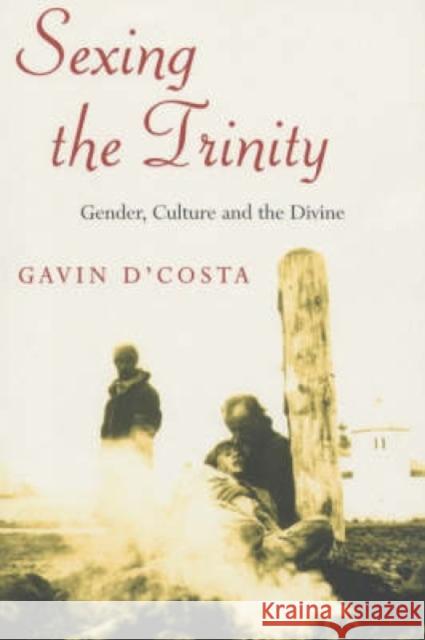Sexing the Trinity: Gender, Culture and the Divine » książka
Sexing the Trinity: Gender, Culture and the Divine
ISBN-13: 9780334028109 / Miękka / 2000 / 282 str.
'This is an astonishingly rich and fascinating book, which engages with French feminist theory as well as with Islam, Hinduism and Judaism, as it revisits traditional Catholic themes: a book destined, I am sure, to renew and deepen reflection on the doctrine of God as Trinity.' Fergus Kerr, OP, Blackfriars, Oxford 'Gavin D'Costa is already well known for his questioning and sensitive theology of religions. In this book, he brings the same openness and sensitiity to a profound consideration of the Christian Trinity and its gendered representations in human culture. Through a series of lively and challenging engagements with the work of Luce Irigaray, Salman Rushdie and the Indian artist Jyoti Sahi, D' Costa develops a searching argument for why God is beyond gender and yet necessarily synbolized in both male and female terms. At once both deeply critical of his own Roman Catholic tradition, and yet passionate in defence of its possiblities, D' Costa argues for an understaning of the Church as 'completing' God's incarnation - in which all follow Mary as 'co-redeemers' with Christ - as a Marian and multi-gendered community. Confronting the complacency of both conservative and radical, this book is a brilliant example of the new 'theology of culture' that treats Christian tradition and contemporary concerns with equal seriousness.' Gerard Loughlin, University of Durham Gavin D'Costa is Senior Lecturer in Theology and Religious Studies at the University of Bristol.
This is an astonishingly rich and fascinating book, which engages with French feminist theory as well as with Islam, Hinduism and Judaism, as it revisits traditional Catholic themes: a book destined, I am sure, to renew and deepen reflection on the doctrine of God as Trinity.Fergus Kerr, OP, Blackfriars, OxfordGavin DCosta is already well known for his questioning and sensitive theology of religions. In this book, he brings the same openness and sensitiity to a profound consideration of the Christian Trinity and its gendered representations in human culture. Through a series of lively and challenging engagements with the work of Luce Irigaray, Salman Rushdie and the Indian artist Jyoti Sahi, D Costa develops a searching argument for why God is beyond gender and yet necessarily synbolized in both male and female terms. At once both deeply critical of his own Roman Catholic tradition, and yet passionate in defence of its possiblities, D Costa argues for an understaning of the Church as completing Gods incarnation - in which all follow Mary as co-redeemers with Christ - as a Marian and multi-gendered community. Confronting the complacency of both conservative and radical, this book is a brilliant example of the new theology of culture that treats Christian tradition and contemporary concerns with equal seriousness.Gerard Loughlin, University of DurhamGavin DCosta is Senior Lecturer in Theology and Religious Studies at the University of Bristol.











